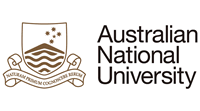About the Project
This PhD project is open to prospective students graduated or going to graduate with a First Class Honours or Masters Degree in chemistry and an interest in homogeneous organometallic chemistry.
Transition metal catalysts are pervasive throughout synthetic, industrial and biological chemistry. Traditionally, catalytic activation of substrates occurs at the metal centre. Molecular cooperativity, wherein bifunctional substrate activation occurs across multiple sites within a catalyst, offers a powerful route to improve catalytic efficiency and selectivity, and develop new catalytic processes. We are interested in designing homogeneous catalyst architectures which promote molecular cooperativity, and investigating the role of both metal-ligand cooperativity and metal-metal cooperativity in enabling efficient catalytic processes.
This project will study chemical hydrogen storage. Hydrogen is a clean fuel that will play an important role in the decarbonised economy. However, storage and transportation are challenging as hydrogen is a gas with a low energy density. Chemical hydrogen storage using liquid organic hydrogen carriers (LOHCs) allows hydrogen to be conveniently stored and transported covalently bonded to a suitable carrier, which can be catalytically hydrogenated and dehydrogenated to store and release the hydrogen fuel. In order for LOHCs to become technologically and economically viable, advances in catalyst efficiency, selectivity and stability are required. The goal of this research project is to investigate catalysts for hydrogenation and dehydrogenation reactions of LOHCs using cooperative transition metal catalysts.
This project will involve ligand synthesis, synthesis and reactivity of transition metal complexes, catalysis and mechanistic studies. PhD students will develop skills in a range of experimental techniques, including air-sensitive organometallic synthesis, catalysis, Schlenk line and glove-box techniques, NMR spectroscopy and X-ray crystallography. During this program students will advance their scientific writing, reading and oral presentation skills. Experience of experimental synthetic chemistry, especially air-sensitive chemistry, would be advantageous, although training will be provided. You should be capable of working under your own initiative and working within a small research team, so excellent communication, organisational and teamwork skills are also required.
This project is based in state-of-the-art laboratories at the ANU Research School of Chemistry in Canberra, Australia. ANU is ranked number 29 in the world and number one university in Australia (QS world rankings 2020). Canberra regularly ranks amongst the best cities in the world for quality of life, and was selected as the number three city to visit worldwide by Lonely Planet in 2018.
ANU values diversity and inclusion, and we welcome applicants from all backgrounds and identities.
Funding Notes
We are offering a PhD scholarship in the field of organometallic catalysis at the Australian National University (ANU), based in Canberra, Australia. For the successful applicant, the scholarship fully covers the university fees and research expenses, and provides additional allowance to cover living costs for up to 3.5 years:
- PhD stipend: AUD $28,092 per year (tax-free)
- Conference allowance and computer fund: AUD $3,000 during PhD
References
If you meet the HDR admission requirements (self-assessment on https://www.anu.edu.au/study/apply/anu-postgraduate-research-domestic-and-international-applications) please send an e-mail directly to Dr Annie Colebatch (annie.colebatch@anu.edu.au) with following information:
- Email subject: Prospective PhD for Cooperative Organometallic Catalysis
- Email body: please provide:
- Your academic & research background, experiences, and research interests.
- When you expect to start your PhD if successful.
- Attachments: CV and academic transcript

 Continue with Facebook
Continue with Facebook

